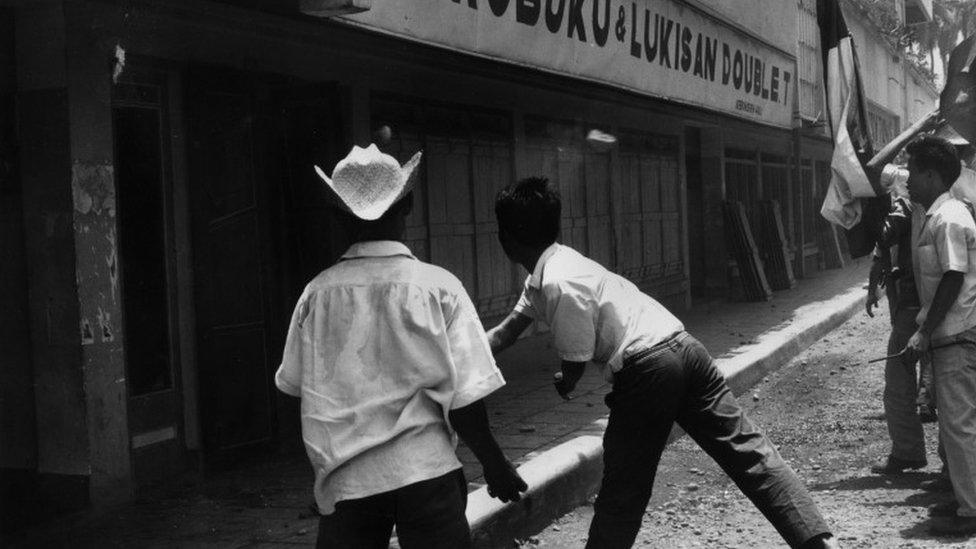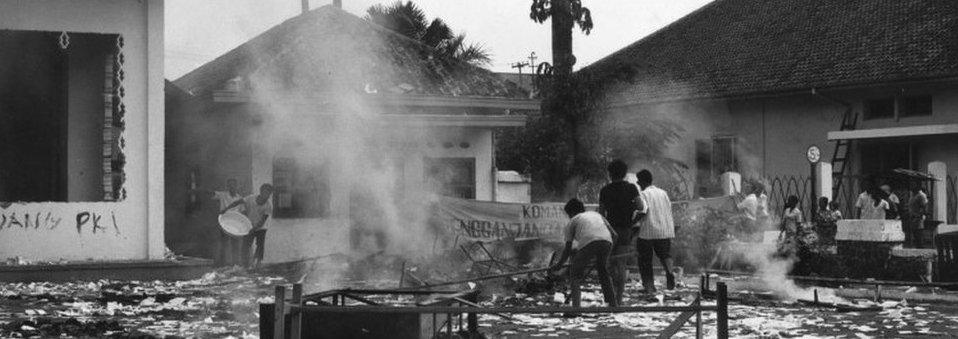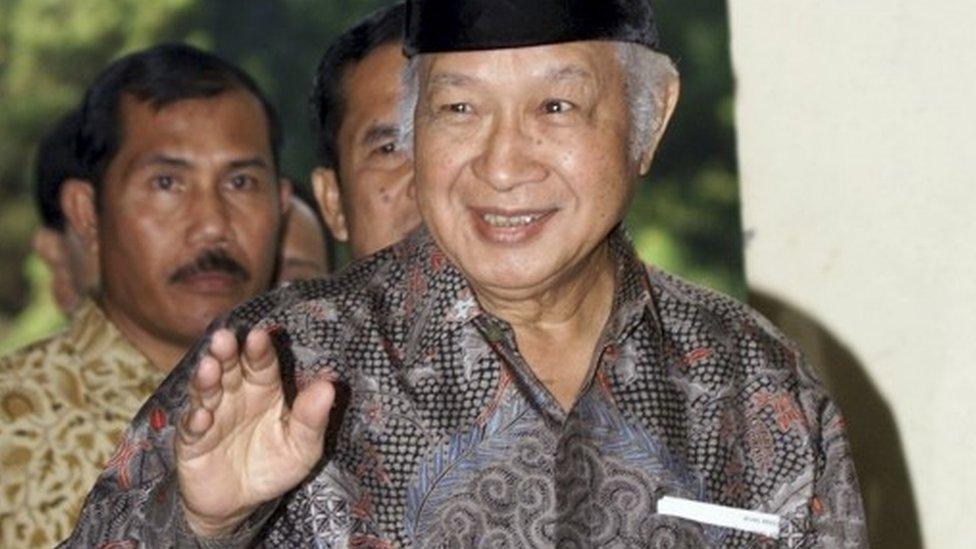Indonesia discusses massacres that killed 500,000
- Published

Communist-associated businesses, including this bookshop, were attacked after the failed coup
Senior Indonesian officials have taken part in an unprecedented meeting to discuss the killing of 500,000 communists and their supporters during an insurgency 50 years ago.
Security Minister Luhut Panjaitan said the country must make peace with its past, but ruled out an official apology.
The meeting brought together victims and members of the security forces.
The massacre began in 1965 after an apparent coup blamed on the communists.
Conference organiser Agus Widjojo, a retired general, said at the meeting that the killings had "torn apart" Indonesia and called for the government to establish a commission for truth and reconciliation.
Mass killing commemorations cancelled
Indonesia 'not safe for documentary director'
"Let's open this history together so we can all find out what has been wrong in our national system, why this nation could have the ability to commit mass killings," he said.
Mr Widjojo's father was among six right-wing generals whose assassinations during the abortive coup were blamed on Indonesia's Communist Party.
In the bloodshed that followed, researchers say the military and religious groups killed half a million people as the former dictator Suharto rose to power.
Suspected Communist Party members and sympathisers were hunted down, tortured and killed in one of the worst massacres of the 20th Century.

What happened in 1965?

Rivalries between the Indonesian military and the Communist Party came to a head when six generals were killed in an overnight attack by soldiers allegedly sympathetic to the communists
A group of officers led by a colonel in President Sukarno's palace guard was accused of trying to launch a coup
General Suharto led bloody anti-communist purges in which hundreds of thousands of suspected leftists were killed
Many more were detained and imprisoned without trial
In 1966, President Sukarno was forced to hand emergency powers to Gen Suharto, who took over as president the following year, ruling Indonesia for 31 years

About 100,000 more suffered years of imprisonment without trial or exile in remote corners of Indonesia because of a tenuous connection to the Communist Party.
During his 32-year rule, Suharto depicted the communists as a threat to bolster his own authoritarian hold on power.
Descendants of Communist Party members are still discriminated against and are banned from holding government jobs, despite calls from rights groups to end the practice.

Gen Suharto, who instigated the purges, went on to rule Indonesia for three decades
There were scuffles between police and protesters outside the Jakarta Hotel where the conference is taking place. The protesters fear it could help revive communism in the country.
However, the conference is being supported by government figures and was attended by Indonesia's attorney general, police chief and justice minister.
After his election in 2014, Indonesian President Joko Widodo promised a state-sponsored inquiry into the killings.
A US role
Rights groups have also called on the US to release its secret files on the killings.
At the time, the US saw Indonesia as an important part of efforts to counter the influence of the Soviet Union and China in South-East Asia.
Documents held in the National Security Archive of George Washington University show the US embassy in Jakarta was aware of some of the killings, AP news agency reported.
The embassy also passed lists of communists it had compiled to Indonesia's military, supplied Indonesia's military with radios and secretly gave money to a military-linked group involved in the repression, AP added.